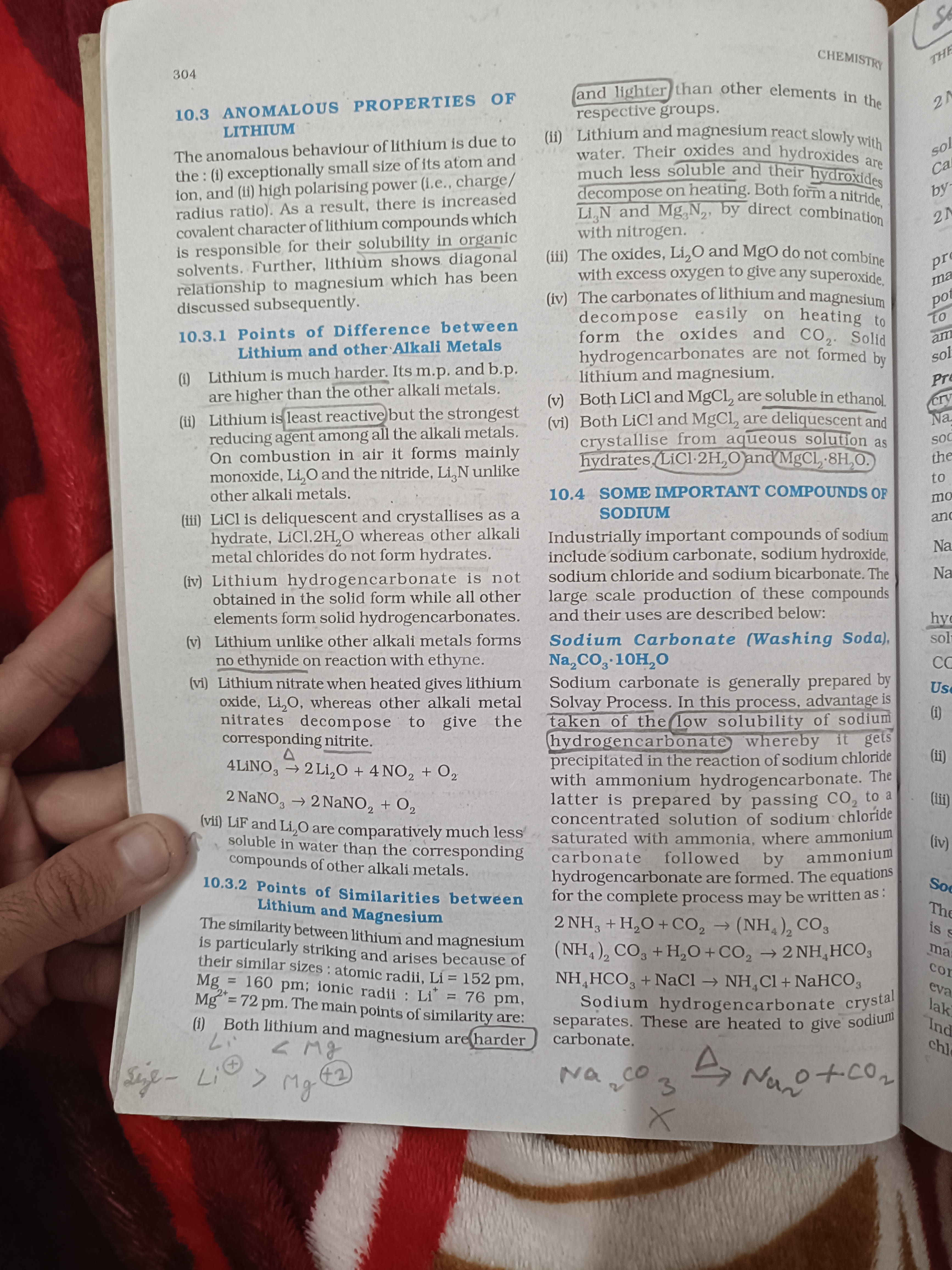What are the anomalous properties of lithium and how does it compare to other alkali metals, along with the process of preparing sodium carbonate?

Understand the Problem
The question provides information about the anomalous properties of lithium and compares it with other alkali metals, as well as discusses sodium carbonate and its preparation. It seeks to summarize the key differences and similarities in properties and solubility, especially between lithium, magnesium, and sodium carbonate.
Answer
Lithium is harder, less reactive, higher boiling/melting points. Sodium carbonate via Solvay process.
The anomalous properties of lithium include its hardness, higher melting and boiling points, and low reactivity compared to other alkali metals. It is a strong reducing agent and forms different compounds with air and water than others. Sodium carbonate is prepared using the Solvay process.
Answer for screen readers
The anomalous properties of lithium include its hardness, higher melting and boiling points, and low reactivity compared to other alkali metals. It is a strong reducing agent and forms different compounds with air and water than others. Sodium carbonate is prepared using the Solvay process.
More Information
Lithium's unique properties result from its small size and high polarising power. The Solvay process is industrially significant for producing sodium carbonate due to its cost-effectiveness.
Tips
A common mistake is not realizing lithium's dual behavior: being the least reactive yet a strong reducing agent.
Sources
AI-generated content may contain errors. Please verify critical information